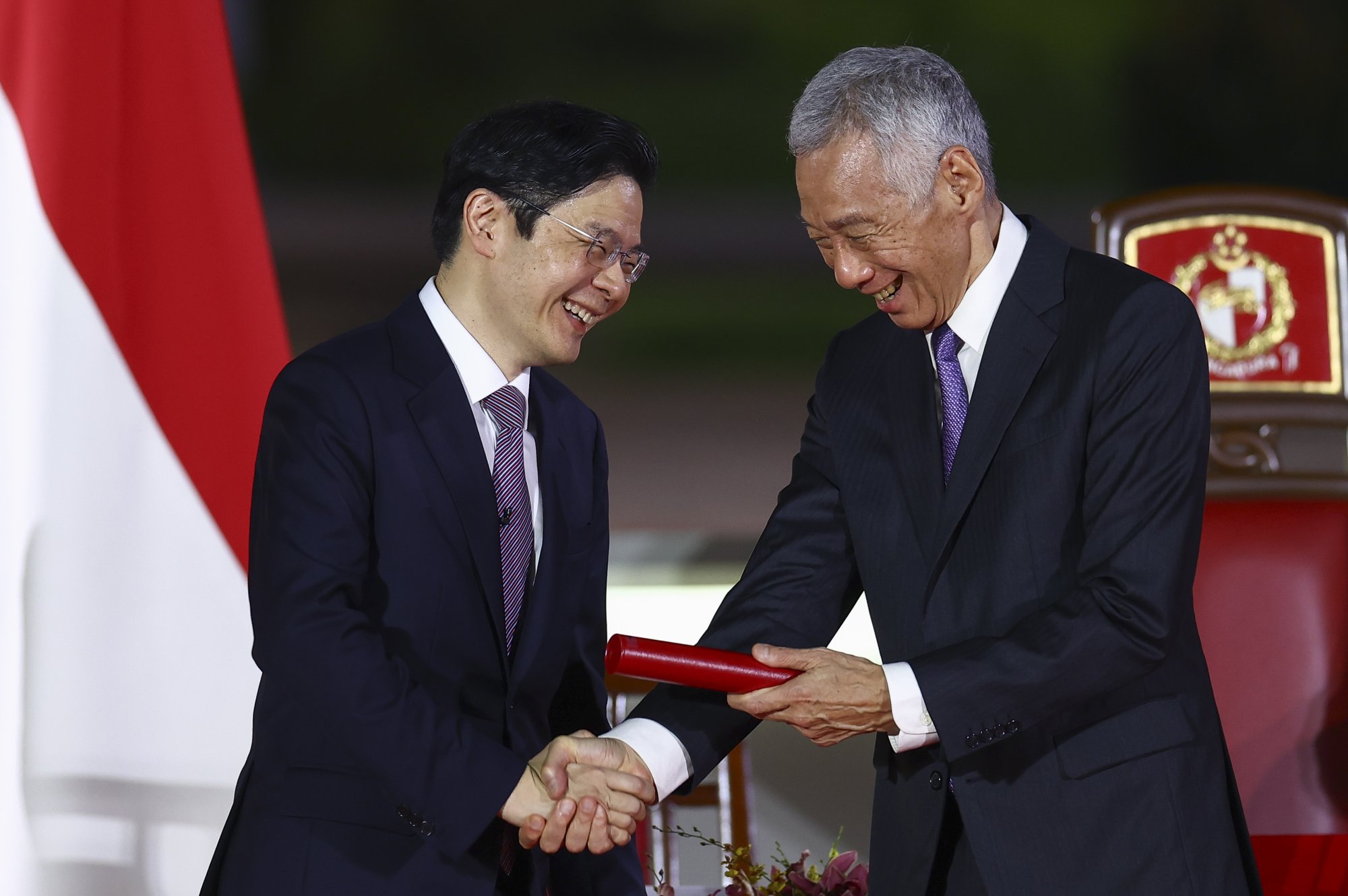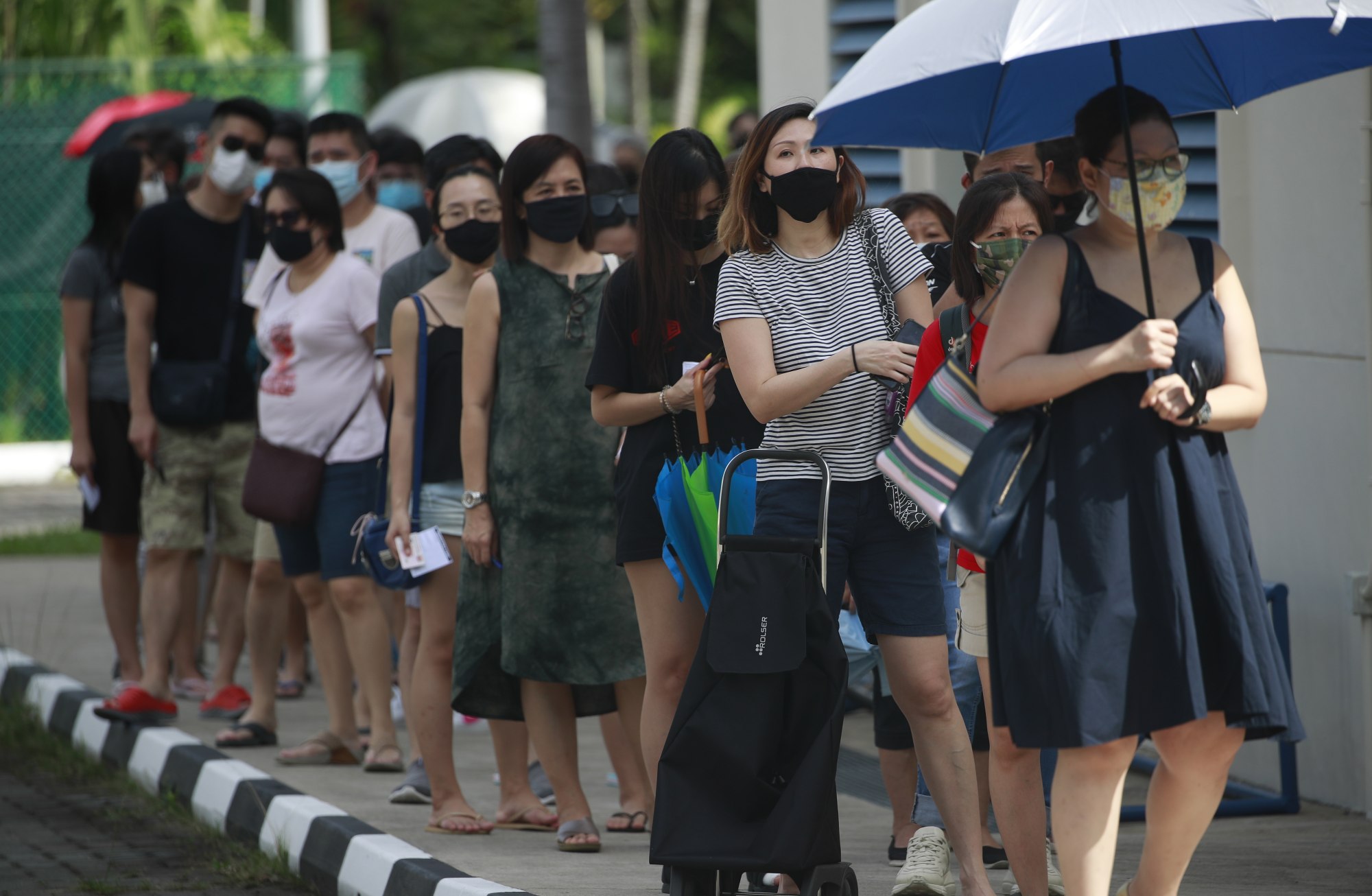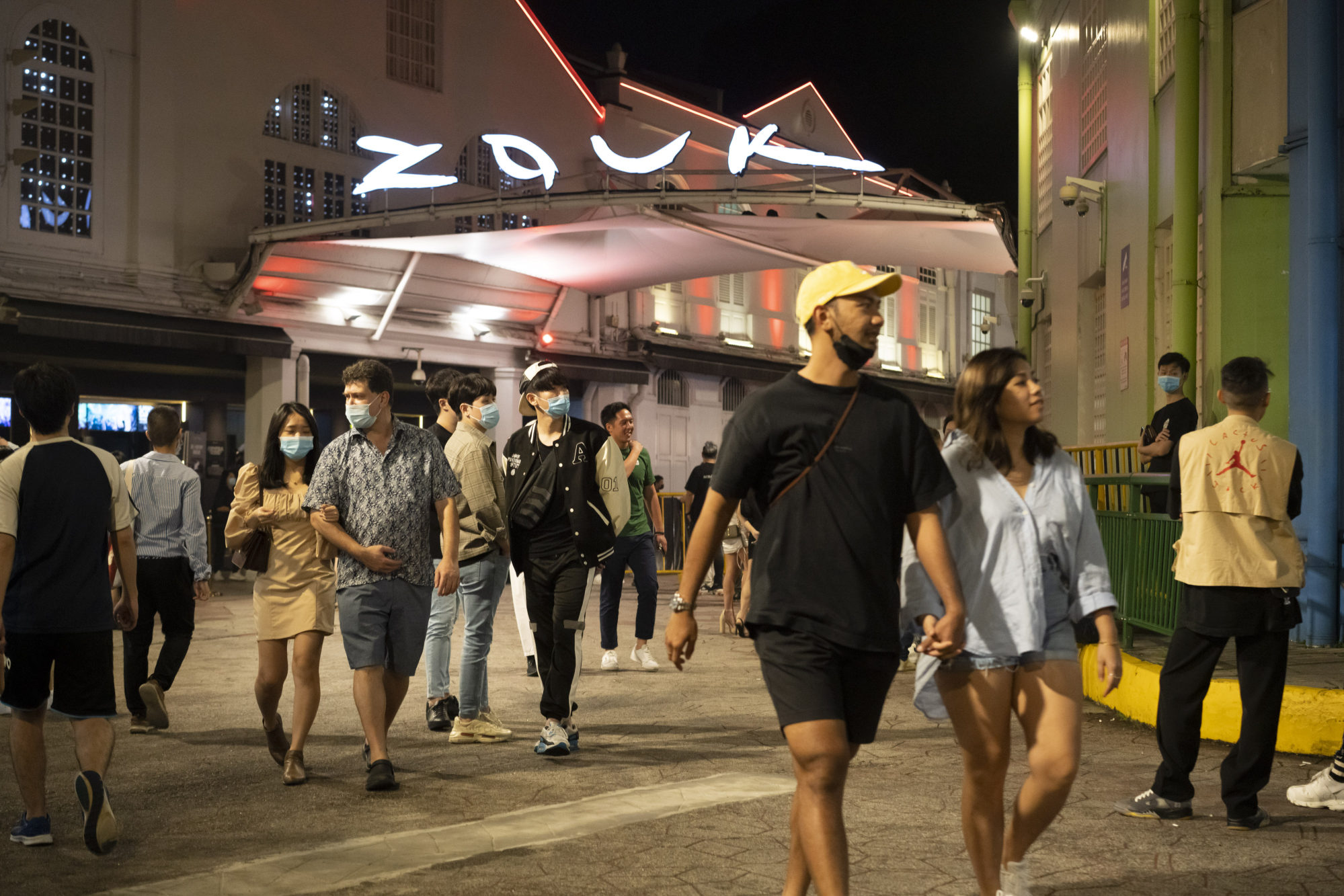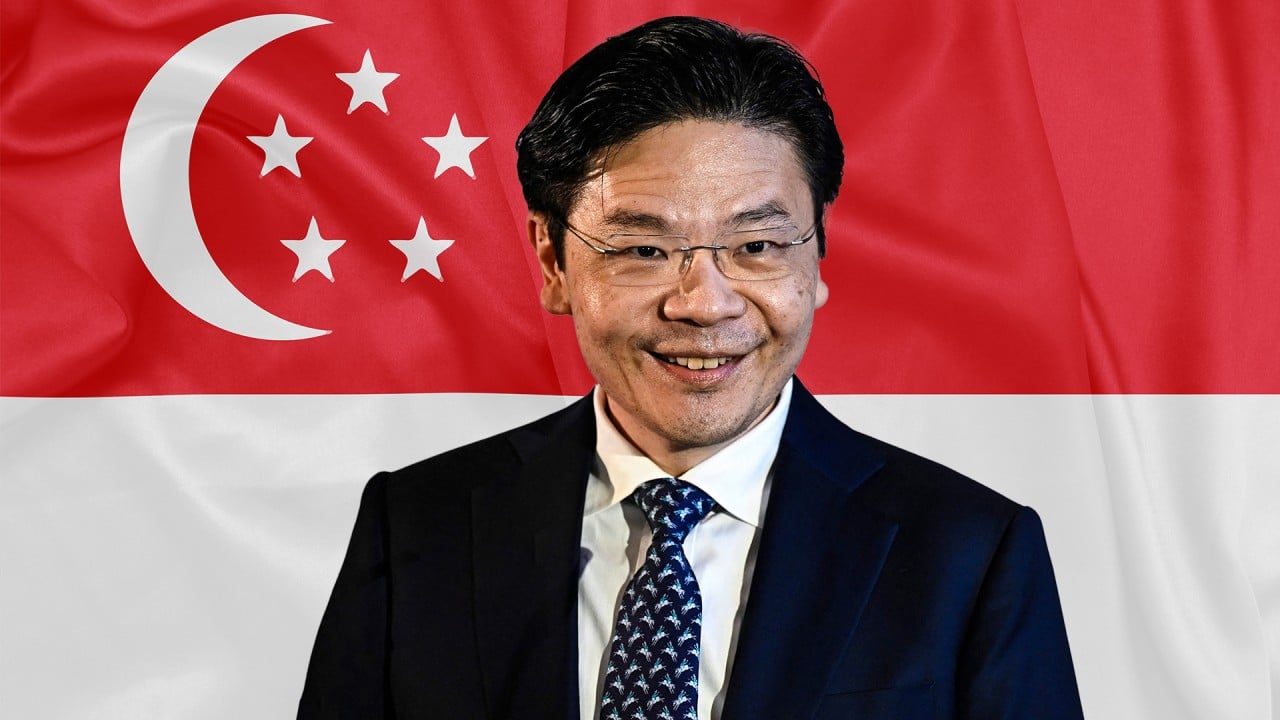Wong said the PAP welcomed those who wanted to join the party and that beyond the core group of party activists, there was the wider Friends of PAP network.
Extending the invitation to individuals, corporate and social service organisations, he added: “We want to grow this network of PAP friends and partners.”

Following the event, local content creators including Simon Khung (@simonboyyyyyyy), Amy Ang (@amyy.ang), Nadia Ongkowidjaja (@nodiooo), Elizabeth Boon (@elizabethboon) and artistes from media company NoonTalk including Dasmond Koh, Michelle Tay, Yang Yan and Ann Kok, were pictured in social media posts rubbing shoulders with Wong and his parliamentary colleagues such as Deputy Prime Minister and Trade and Industry Minister Gan Kim Yong, and National Development Minister Desmond Lee.
Several of these content creators and artistes were also spotted in pictures on the party’s coverage of the event on its website.
This Week In Asia has reached out to the content creators, artistes and NoonTalk Media but none, aside from Khung who declined to comment, has responded by press time.
Koh, NoonTalk’s co-founder who has more than 102,000 followers on Instagram and over 47,000 on TikTok, posted a clip of the event on TikTok with the caption: “Glad to know that @PAPsingapore is all set to engage wider, communicate better and organise stronger to champion the diverse and evolving aspirations of our nation. Together, we will be even better! #RefreshPAP”
The presence of these attendees at the event has left critics and alternative media sites in Singapore wondering if the influencers were paid for the marketing.
A Reddit user called Khung a “sell-out” while a TikTok user questioned Koh if his endorsement would affect his “future engagement positively”.
Koh responded: “Our job as a media company/person is to hear and understand news, [help] to disseminate and let each individual make their own judgment. Future engagement? Not in this context.”
Communications experts told This Week In Asia that while collaborations between content creators and politicians were gaining traction worldwide, personalities have to avoid being seen as overdoing it.
Tracy Loh, a senior lecturer of communication management at the Singapore Management University, noted that the government’s hold over society in Singapore was strong and many members of the public would want to pose with ministers and members of parliament and be seen on social media.
“It’s something that followers would definitely be interested in and can definitely boost your numbers as well. But again … you cannot be overdoing it because you also don’t be seen as the government shill,” said Loh.
“There is also an element of it paying to be in the good books instead of being blacklisted [from attending such events] and reporting second-hand news, which isn’t that great for credibility.”
For sponsored posts, Loh said it was important that such paid partnerships were made clear to followers. “There needs to be a distinction between I’m saying this because I believe in it and I’m saying this because there was some commercial intent behind it.”
The government is one of the biggest advertisers in the country, with the Ministry of Communications being the third-largest spender in the first half of 2022, according to Nielsen, a data and market measurement firm.
In the 2019 financial year, the Ministry for Communications and Information estimated that the government spent between S$150 million (US$112.9 million) and S$175 million on advertising, with the amount increasing by 30 to 50 per cent in the 2020 and 2021 financial years due to Covid-related announcements.
Asked if content creators in Singapore felt compelled to go along with government partnerships because of potential financial gains, Natalie Pang, associate professor and deputy head of communications and new media at the National University of Singapore said “compelled” was too strong a word but noted that content creation is “essentially a for-profit or profit-maximising enterprise”.
“So long as the business case is clear, it is probably hard to imagine saying no. But once they enter a paid relationship, there could be dilemmas that they may be faced with, for example, feeling obliged to endorse and agree with the parties or candidates that have paid them.”

Terence Lee, a professor of politics and communication at the Sheridan Institute of Higher Education, pointed out that influencers were not a typical match for the PAP given its traditional approach and political mindset.
“The 4G leaders are seeking to change this image by trying something different,” said Lee, referring to the fourth-generation of PAP leadership.
He noted earlier attempts by the party to connect with younger Singaporeans were not well received. “Most Singaporeans would probably say that past attempts have been too contrived, and therefore not quite successful.”
Lee cited the hip-hop dance routine that some PAP members of parliament born after the nation’s independence in 1965 put on for the annual Chingay parade in 2007 as an example.
In 2006, Lee Hsien Loong, then prime minister and finance minister, also visited popular nightclub Zouk Disco for a Lunar New Year Lunch with senior citizens of Tanjong Pagar Community Club.
He also invited bloggers including Lee Kin Mun, more famously known as mrbrown, to the Istana for tea in 2012.

On the party’s side, Loh pointed out that PAP was ultimately a brand and that using content creators to expand its reach was not surprising. “[The PAP] has its goals and objectives which is it wants to get you to vote for them. Every other brand has used influencers, so why wouldn’t the PAP do the same?”
Using content creators can also help the party communicate better, something Wong has called for at least twice in the past year. Last November, Wong, then deputy prime minister, told party members the PAP must improve how it communicated and highlighted differences between its policies and that of the opposition.
Loh said: “It’s been a long-standing problem with the PAP where communicating why certain policies are necessary doesn’t really come across that strongly no matter how good the policy is.”
She added that the PAP’s collaboration with content creators was not just about tapping their base of followers but explaining policies in a language the target audience was familiar with.
“It’s just another way of getting through to the people because we know that the younger generation don’t really read traditional media that much any more so it’s about getting them wherever they are,” said Loh.


